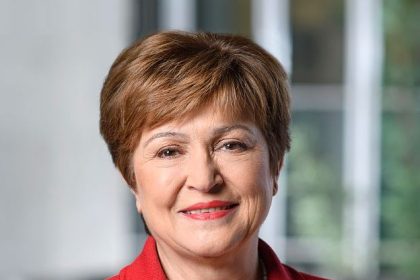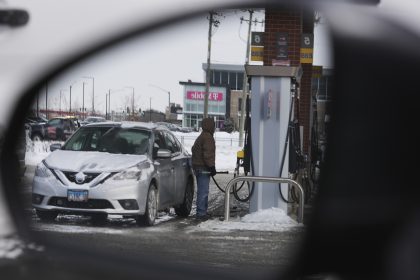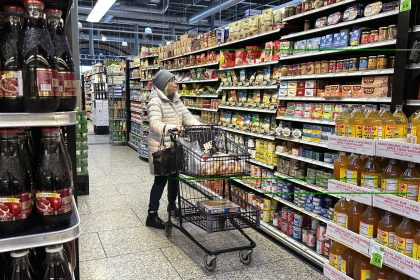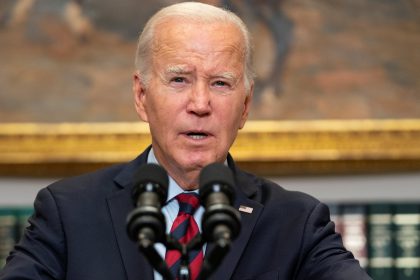An Economic Tsunami Could Thrust Half a Billion People Into Extreme Poverty

RIO DE JANEIRO — It seemed like Silvanah Lima was finally getting ahead.
Born and raised in Brazil’s drought-ridden northeast, she moved with her partner to Rio de Janeiro in 2018, in search of work. He was hired as a janitor; she began selling meals on the street, and soon they were bringing in $280 a month — enough to start saving to one day build a house back home.
The novel coronavirus pushed that dream out of reach. Lima, who has diabetes and heart problems, putting her at higher risk of dying if she contracts the virus, stopped working once the pandemic took hold in her sprawling slum, known as the City of God.
Now it seems that if the coronavirus doesn’t kill her, hunger may.
“We have to pay the rent, and we don’t have the money,” said Lima, 48. “I haven’t even been able to buy beans.”
The economic devastation the pandemic wreaks on the ultra-poor could ultimately kill more people than the virus itself.
The United Nations predicts that a global recession will reverse a three-decade trend in rising living standards and plunge as many as 420 million people into extreme poverty, defined as earning less than $2 a day.
As for the 734 million people already there, the economic tsunami will make it harder for them to ever climb out.
“I feel like we’re watching a slow-motion train wreck as it moves through the world’s most fragile countries,” said Nancy Lindborg, president of the nonprofit U.S. Institute of Peace and former head of the Ebola task force at the U.S. Agency for International Development.
Hunger is already rising in the poorest parts of the world, where lockdowns and social distancing measures have erased incomes and put even basic food items out of reach.
In Guatemala, villagers are begging for food along highways by waving pieces of white cloth at passing drivers. In Colombia, the hungriest hang red flags from their homes in hope of donations.
Recent phone surveys in places as disparate as Senegal and rural China suggest that large swaths of society have lost their livelihoods and, as a result, are eating less.
The U.N. predicts the coronavirus could push an additional 130 million people to the brink of starvation by the end of 2020. World Vision, an international Christian aid organization, warns that 30 million children are at risk of dying.
“I want to stress that we are not only facing a global health pandemic but also a global humanitarian catastrophe,” said David Beasley, executive director of the U.N.’s World Food Program.
While the virus has already hammered many developed nations, which are now taking cautious steps to reopen their economies, it has yet to peak in many of the world’s poorest countries, meaning the economic devastation there could drag on longer.
The pandemic, which began in an industrial Chinese city but has since spread to even the remotest corners of the Amazon rainforest, has exposed the radical interdependence of the modern world — causing disruptions in everything from manufacturing to the global narcotics trade.
In Mexico, where an estimated 1.6 million households survive on money sent from relatives working in the United States, many are beginning to feel the secondary impact of the closures of restaurants, hotels and the construction industry north of the border.
“Families are not receiving their remittances,” said Abel Barrera Hernández, an anthropologist in Mexico’s impoverished Guerrero state.
The decline in dollars has in recent weeks forced some subsistence farmers to migrate to northern Mexico in search of work, because they lack resources to cultivate food on their own land.
“It takes money to plant seeds, to buy fertilizer and to pay somebody to help you pick,” Barrera said. “But there is no money. Nobody has any money.”
In many of the world’s poorest places, the lockdowns have proved more destructive than the virus itself.
Take Shatila camp, a warren of sewage-slicked alleyways in Beirut that is home to 20,000 Palestinian refugees.
Clean water is scarce, and families live 10 to a room in moldy cinder-block shacks. The recommended separation for social distancing — six feet — is the length of some apartments.
Surprisingly, there have been no confirmed COVID-19 cases in the camp. But the people living there — mostly menial laborers who buy food one day at a time — are being driven deeper into hardship.
“People are hungry,” said an official who oversees health management at the U.N.’s agency for Palestinian refugees. “Hunger has more victims now than corona.”
Fawaz Gerges, a professor of Middle East politics at the London School of Economics and Political Science, said many countries in the region faced financial difficulties before the pandemic, and he worries about the potential for political unrest.
“You already had collapsed economies,” Gerges said. “The majority of people were already in abject poverty and had declining standards of living.”
Experts say the pandemic will only exacerbate global inequality, which has risen in recent decades as top earners pull away from everybody else. Among other things, the gap between the haves and the have-nots is being reinforced by a growing digital divide as the pandemic drives more jobs online.
“I’ve entered houses where the people have no bread, no cans of food, no sugar, no cooking gas,” said Mohammad S Al-Zawahreh, a Jordanian civil society activist. “It’s not going to work to tell these people to develop yourself — learn Skype or Zoom — while their children are starving.”
The U.N. and private aid groups have raised the alarm in recent weeks, saying a concerted international strategy is needed.
Last week U.N. officials increased the size of their coronavirus aid appeal from $2 billion to $6.7 billion, cautioning that “the specter of multiple famines” looms on the horizon.
“Unless we take action now, we should be prepared for a significant rise in conflict, hunger and poverty,” said Mark Lowcock, who heads the U.N.’s Office for the Coordination of Humanitarian Affairs.
But there are growing fears that the United States and other wealthy nations — which are dealing with the pandemic on their own turf — will fail to heed the call to action.
“My big concern is that folks will lose their appetite for this kind of work, and there won’t be the political will necessary,” said Joy Portella, a U.S.-based health and development consultant.
At risk is three decades of progress. Since 1990, more than 1 billion people — 13% of the world’s population — have risen out of extreme poverty, according to the World Bank.
The gains were driven by China and India, where rapid industrialization has fueled major economic growth and lifted living standards.
Economists say those places are likely to recover more quickly than less-developed countries, particularly in sub-Saharan Africa and parts of South Asia, which depend on foreign aid and lack the economic engines to rally back. Citizens there will suffer the effects of reduced spending on education, health care and anti-poverty programs.
“People who were living in poverty and vulnerable before COVID-19 will be living in more poverty and will be more vulnerable after,” said Portella. “The less you have, the longer it takes to recover. The climb back … is just really steep and hard.”
But she and others said there is the potential for positive change. Longtime debates in the development world over the importance of hiring local foreign aid workers and the usefulness of cash transfers — as opposed to the donation of goods — may be settled by new travel restrictions.
Lindborg said she hopes the global nature of the pandemic will spark a new sense of empathy.
“My hope is that this is a giant reset moment,” she said. “This isn’t going to be the last pandemic. … There are other things we will face together.”
But in the poorest parts of the world, optimism is scant.
In Venezuela, which for years has been roiled by food scarcities, soaring inflation and street protests calling for the removal of President Nicolás Maduro, life was miserable for many before the pandemic, and it has only gotten worse.
In Caracas, Yelegnis Coromoto Andrade and her husband once earned about $30 a month cobbling together multiple jobs.
Since the restaurant where he worked closed and her gigs cleaning houses and caring for elderly clients dried up, their monthly income has fallen to just $3.
“We have lost a lot this year, and my question is, how will we get it back?” she said. “I try to keep putting the bread on the table, but all I see around me is hunger and need.”
———
Linthicum reported from Mexico City and Bulos from Beirut. Ionova, a Los Angeles Times special correspondent, reported from Rio de Janeiro. Special correspondent Mery Mogollon in Venezuela contributed to this report.
———
©2020 Los Angeles Times
Distributed by Tribune Content Agency, LLC.
























